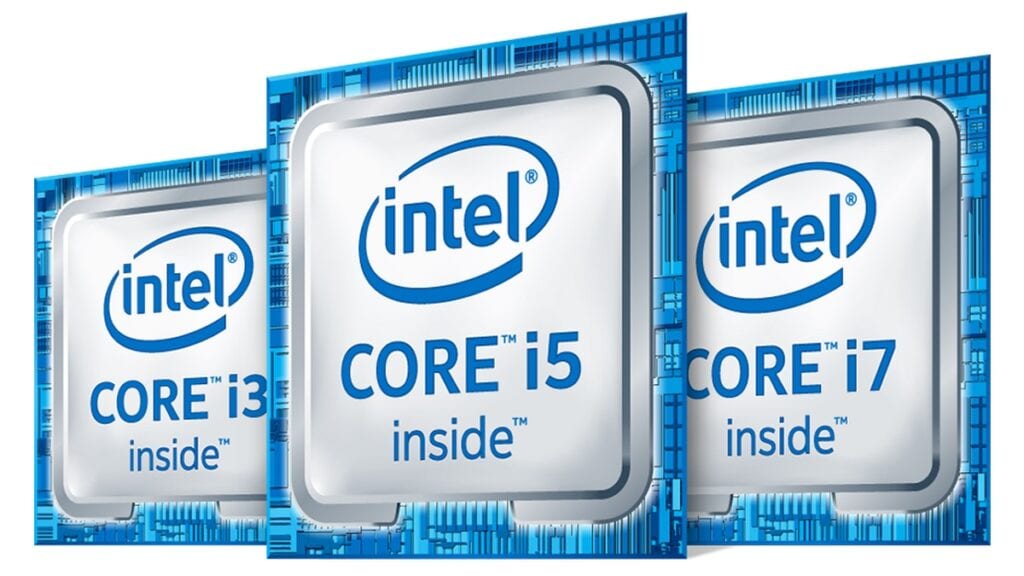If you are in the market for refurbished laptops or notebooks but feel overwhelmed by the jargon and technical specifications, we are here to help. Choosing the right laptop can be a daunting task, especially when you’re faced with options like AMD, Ryzen and Intel Core i3, Core i5, and Core i7 processors, various RAM sizes, and the choice between SSD and Hard Drive storage.
Fear not! In this comprehensive guide, we’ll break down these components in plain language to help you make an informed decision and find the perfect refurbished laptop that suits your needs.
The Heart of the Machine: The Processor / CPU
The processor, often referred to as the laptop’s brain, is a critical factor that significantly affects its performance. Primarily we stock laptops with Dual Core, Core i3, Core i5, and Core i7 processors made by Intel. Let’s delve deeper into the differences between these:

- Pentium / Dual Core: Entry-level on a budget, these are the cheapest processors available and are good for casual use, people who are looking for their first laptop for the basics, learning how to use a computer etc. Although they are very affordable, they are not the most powerful so won’t offer a great deal of speed.
- Core i3: These are the next step up entry-level processors which are suitable for all basic tasks like web browsing, emailing, and working with office applications. It’s an excellent choice if your primary usage revolves around everyday computing without heavy multitasking or demanding applications.
- Core i5: Positioned as the middle ground, Core i5 processors offer a balanced mix of performance and power efficiency. They are well-suited for everyday tasks, including multimedia consumption, light gaming, and multitasking. If you want a laptop that can handle various applications smoothly and provide a responsive experience, a Core i5 processor is a solid choice.
- Core i7: Designed for power users, graphics designers, gamers, and professionals, Core i7 processors pack a punch in terms of performance. These laptops are capable of handling resource-intensive tasks such as video and photo editing with ease. If your needs demand top-tier performance and you plan to tackle demanding applications, a laptop with a Core i7 processor is the way to go.
RAM: The Multitasking Marvel
RAM (Random Access Memory) serves as the laptop’s short-term memory and plays a crucial role in multitasking and overall performance. Understanding the RAM options available is essential:

- 4GB RAM: This amount of RAM is suitable for basic tasks and light multitasking. If your laptop usage primarily involves web browsing, working with office applications, and occasional media consumption, 4GB should suffice.
- 8GB RAM: Often considered the sweet spot for most users, 8GB of RAM provides a seamless multitasking experience. It can handle moderate gaming, run multiple applications concurrently, and ensure smooth performance across a wide range of tasks.
- 16GB+ RAM: For those who just want more speed, power users, content creators, and gamers, can all truly benefit from laptops with 16GB or more. This larger memory ensures smooth operation when dealing with large files, heavy multitasking, lots of tabs, and resource-intensive applications. If your work or hobbies demand high performance, consider a laptop with 16GB or more RAM for a premium computing experience.
Gaming Considerations: The Importance of a Dedicated Graphics Card

If your laptop usage extends to gaming, there’s an additional crucial factor to consider: the graphics card, also known as the GPU (Graphics Processing Unit). For an optimal gaming experience, we highly recommend choosing a laptop with a dedicated graphics card. Unlike integrated graphics, which share system memory with the CPU, a dedicated graphics card has its dedicated memory and processing power solely for graphics-related tasks. This means smoother gameplay, more FPS, better visuals, and the ability to run graphically demanding titles.
When selecting a laptop for gaming, it’s essential to check the specifications carefully, especially if you plan to play specific games. Not all laptops are suitable for gaming without the appropriate graphics card. Here’s how you can ensure compatibility:
- Check Game Requirements: Each game has its system requirements listed on its official website or platform (e.g., Steam). Pay attention to the recommended and minimum requirements. These often include details about the required CPU, RAM, and, most importantly, the GPU.
- Compare with Our Products: If you’re browsing our selection of refurbished laptops, be sure to compare the specifications of the laptops you’re interested in with the game’s requirements. Look for a laptop with a dedicated graphics card that meets or exceeds the game’s recommended GPU.
With this deeper understanding of the differences in performance between processors and other components that build up the foundations of your laptop or notebook, you can make an informed decision that meets your needs and budget.
Remember, a laptop’s performance and enjoyment depends on more than just its specification, so consider other factors like screen size, and build quality which are important to ensure you find the perfect laptop, and enhance your computing experience. With high spec Business Grade laptops from leading brands, such as the units we stock, you’re sure to find a quality device at the right price, to suit your needs. Need any further advice? Ask one of our experts!
